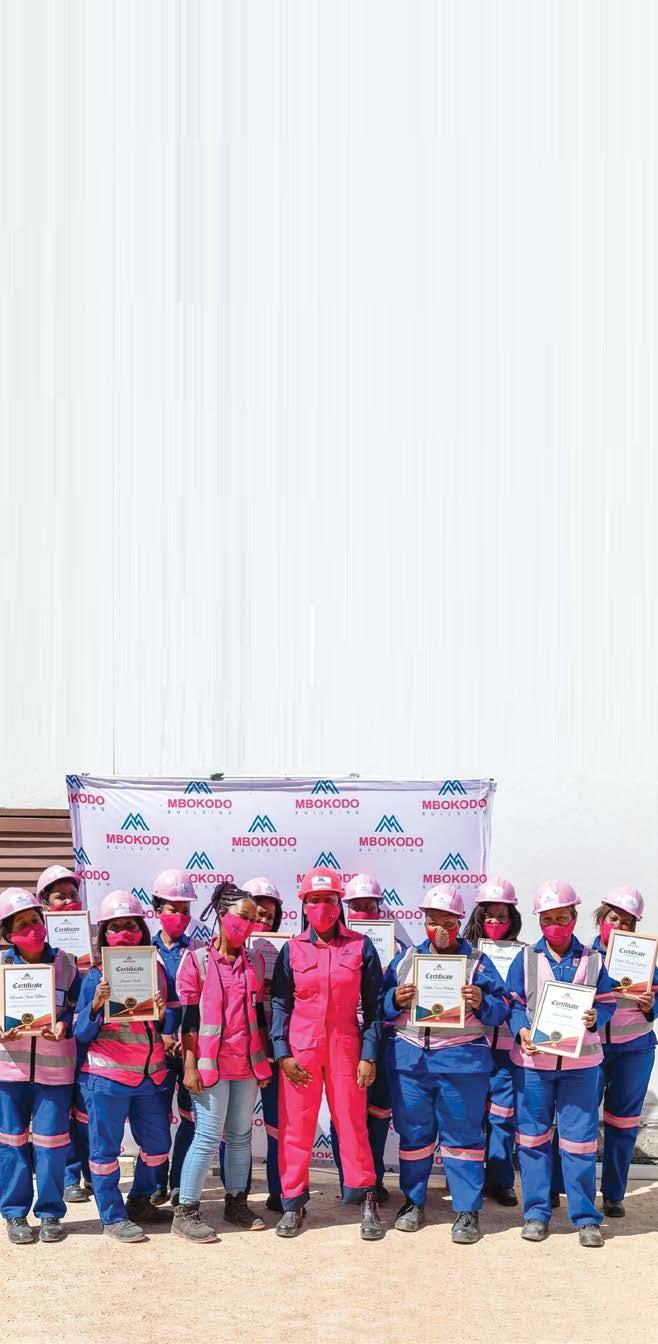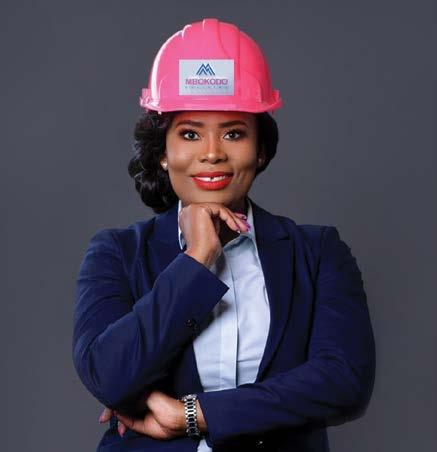
3 minute read
Sisters are doing it for themselves in SA construction
Despite progress, South Africa’s key economic sectors largely remain a man’s world. Take construction, where only one in ten professionals is female. There are glimmers of hope, though. Across the country, women are digging deep to change the landscape. Thandeka NombanjinjiNzama from Soweto is one of them. Besides realising residential, civil, and commercial developments worth hundreds of millions of Rands, she is steadily building a new gender narrative for the construction industry.

Starting her own business has always featured on Nombanjinji-Nzama‘s agenda, thanks to the influence of her entrepreneurial parents. Her late father and property developer, Ligwa Nombanjinji, has been instrumental in this.
“My mom and dad were both entrepreneurs, and they grounded me and taught me the value of running your own show,” she says. “My father was the one who introduced me to my passion, construction, and equipped me with the business acumen to start on my own. It is because of him that I am not afraid to get my hands dirty,” she says.
Whilst gender roles weren’t an issue at home, Nombanjinji-Nzama soon realised this didn’t apply to the rest of society.
“When I worked as a construction intern, I realised how very few women, especially women of colour, worked in the sector, let alone headed up these building companies,” the 38-year-old recalls.
Her statements correspond with the October 2018 Construction Industry Development Board’s quarterly report, which shows only 11% of all construction professionals are female. That figure is
even lower when looking at women of colour, especially in leadership roles. Besides being in the minority, NombanjinjiNzama recalls how challenging it was to work as a young woman in this sector. “I have experienced the harshness of the industry first-hand. People judged me based on my gender, assuming I would fail because I was a woman,” she says.
It didn’t take long before she decided she wanted to make construction more diverse and
inclusive and fight the patriarchal challenges female construction professionals face.
“I knew I had to do this from the inside out, meaning I had to start my business.”
This led to the launch of Mbokodo Building in 2008, a 100% female-led and owned general and civil engineering company that has realised R200 million worth of projects. These include an RDP housing project in Gugulethu, Cape Town; water and sanitation infrastructure in Johannesburg; a primary school commissioned by AngloGold Ashanti; and various other developments, from libraries to railway bridges.
In the meantime, the company is working hard to fulfil its gender gap mandate, which revolves around the training, empowering, upskilling and employing of women in the sector and helping them excel. So far, over 80 women have been given work opportunities, with more on the cards as the company grows. “Look, the time to talk is over. We have spoken about gender inequality for decades. It is time for us to walk the talk,” Nombanjinji-Nzama says, noting that empowering women and getting them working is not just beneficial for women and their families, but for the country as a whole.
“As Michelle Obama once said: No country can ever truly flourish if it stifles the potential of its women and deprives itself of the contributions of half of its citizens.”

Thandeka Nombanjinji-Nzama
About Mbokodo Building
Wathint’ Abafazi, Wathint’ Imbokodo (you strike the women, you strike a rock) Mbokodo Building Pty Ltd is a pioneering 100% female led and owned 7(GB) and 7(CE) construction company that specializes in general construction and all civil engineering works. Mbokodo Building Pty Ltd was created for the sole purpose of minimizing the gender gap and prioritizing the inclusivity of women in the construction industry. We aim to change the narrative of male domination within the built industry by means of prioritizing the employment, promotion, upliftment, skills development and empowerment of women.










